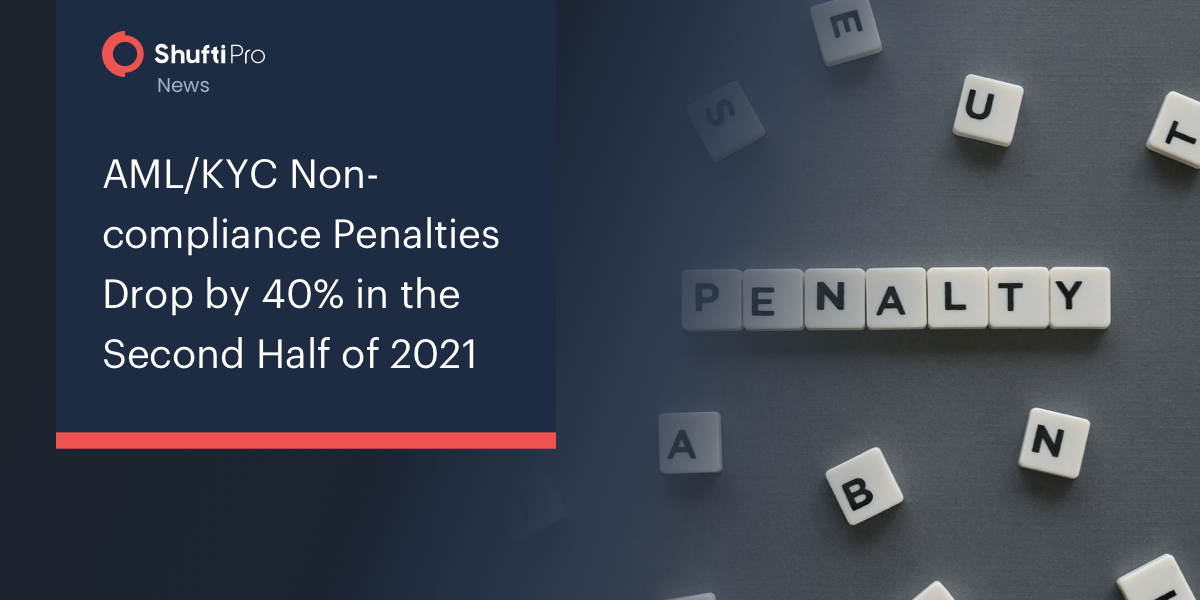
AML/KYC Non-compliance Penalties Drop by 40% in the Second Half of 2021



BEFORE YOU GO...
Check how Shufti Pro can verify your customers within seconds
Request DemoNo thanks
KYC/AML non-compliance penalties have dropped by 40% in the second half of 2021. However, this does not guarantee a reduction in financial crime.
Know Your Customer (KYC) and Anti-Money Laundering (AML) non-compliance has been a major concern for law enforcing bodies. Over the years, penalties on financial institutions for violating KYC/AML regulations dramatically increased and the pandemic fanned the flame. Last year, the aggregated bank fines were €12.09 billion, whereas the first half of 2021 reported 17 penalties over $1,250,521,695 and £910,192,215.
After the hefty penalties in 2020, the finance and crypto sectors are all set to break records for AML non-compliance fines in 2021.
Find out more: https://t.co/epTmWwZNZU#UnitedKingdom #gaming #BREAKING #banks #cryptocurrencies #ShuftiPro pic.twitter.com/kF9eE30ViH
— Shahid (@Shahid58732587) June 21, 2021
Surprisingly, the second half of this year has seen a rapid decrease in non-compliance penalties. Reports from the Financial News reveal that fines money laundering law violation have dropped by 40% totaling for $930 million across the globe.
Although regulatory bodies of the world were expecting an uptick in financial crimes, the significant drop in non-compliance penalties has left everybody in shock. It might be assumed that decrease in penalties is due to reduced FinCrime. However, that is not the case according to experts.
In the first half of 2021, many fines were imposed worldwide, especially in the US, UK, Italy, and Switzerland. The Financial News reports that penalties may be levied further down the line since many cases of non-compliance will be investigated. Financial institutions are found to have weak KYC/AML systems.
Analysts have revealed that there is a broad scope for improvement in the KYC and AML compliance system worldwide. Banks and all other financial institutions have to work more on making the systems rigid.